Woyun Village 卧云村

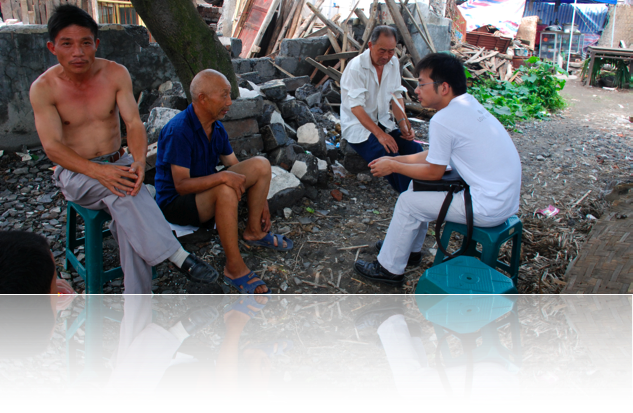
A flattened village
A mere fifteen-minute car ride from Mianzhu City - one of the hard-hit disaster areas - took us to Woyun Cun, a village of a little over 2000 inhabitants. 24 people died here and 350 were injured, according to official reports. Destruction seemed to be far worse here than in Mianzhu City. When we arrived at the former village government house (right) we were surrounded by rubble. Between the collapsed walls people had put up tents and make-shift homes from wooden planks which they had recovered from the debris of their old homes. Skimming through some of the official damage assessment papers, I realized that almost every house in the village had collapsed. Those houses which had withstood the tremors were so badly damaged that the farmers could not live in them anymore.
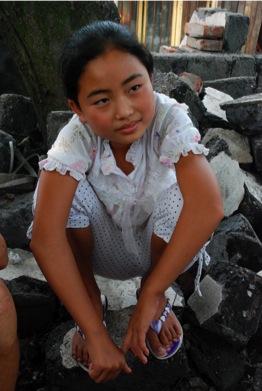
Grandfather Liu lost his home
Liu Yingquan, a friendly old man of 73 (right), was chatting with a friend when Gong Sheng and I arrived for an interview. Both men were sitting on the rubble of Grandfather Liu’s old home, which he had built in 1995 to help his son make a good match. Back then his son was in fact able to marry the woman of his choice but after the earthquake, the house is completely in ruins (pictures below). It will cost between 70,000 and 80,000 yuan to rebuild it. Luckily, nobody from the family died but his 13-year-old granddaughter was injured when her school collapsed. Her classroom was on the third floor but she was able to run out fast enough. She had to get stitches at the hospital and now stays with her parents (Grandfather Liu’s son and daughter-in-law), who are migrant workers in Chengdu, the capital of Sichuan. She feels much better now, says Grandfather Liu.
New life after the disaster
During our talk more and more people arrived to listen and comment. They all have their individual memories of the earthquake to tell. One man recalls that the earth shook sideways and up-and-down at the same time; he was out in the fields. He just wanted to survive at that moment. Luckily, 12 May was an unusually cool day so people were still out in the fields during the hot early afternoon hours. Had it been hotter that day, the amount of casualties would have been much higher than those 24 people who died in the village.
Now, the people of Woyun Cun need to rebuild their homes, preferably before winter starts. The government promised to give up to 20,000 yuan to each family but homes are much more expensive than that. The village head told us that a common house costs around 70,000 Yuan in this area.
A make-shift home
When we came to Woyun Cun at the end of July, Grandfather Liu and his wife had just finished their make-shift home from the recycled rubble of their collapsed house (right). A young man was hired who was able to put up the structure but the quality is not very high. In winter, the wind and rain will come through the gaps between the wooden bars. However, for now, he and his wife are happy with it. 10% of the village population were still living in tents at the time of our visit. The government promised to support Grandfather Liu’s effort to build a solid shelter by himself with 2000 yuan. He is still waiting for the money to arrive.
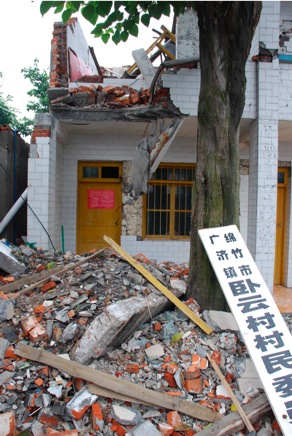

She survived in a collapsing school
Tang Zhengxi is 13 years old and attends primary school. Her favorite subject is math and she likes to play ping-pong and badminton. She was in her classroom on the second floor when the walls started shaking. Unlike most of the other children, Tang Zhenxi did not head for the exit but - following an instinct - hid in the corner of a room. She had made the right choice. The part of the building were she hid did not collapse. She survived physically unharmed. But she obviously suffers from her traumatic experience. During our chat she started crying. Fears still haunted her, she said. In the middle of the night, she would wake up.
Tang Zhengxi was lucky. Two children and one teacher died that day. Official government statistics assume that 7000 classrooms were destroyed during the earthquake.
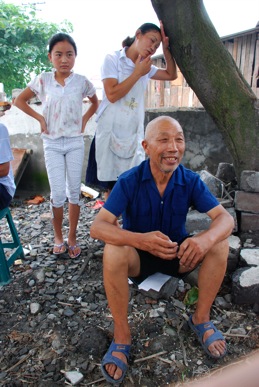
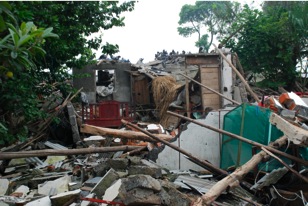
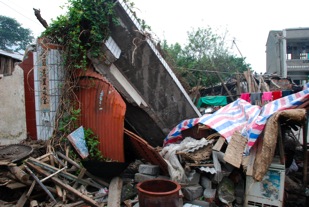
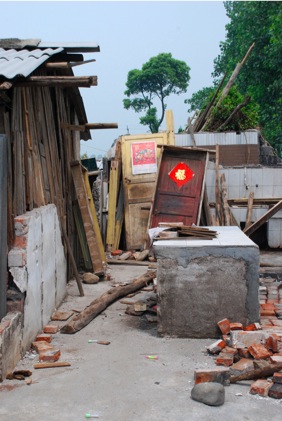
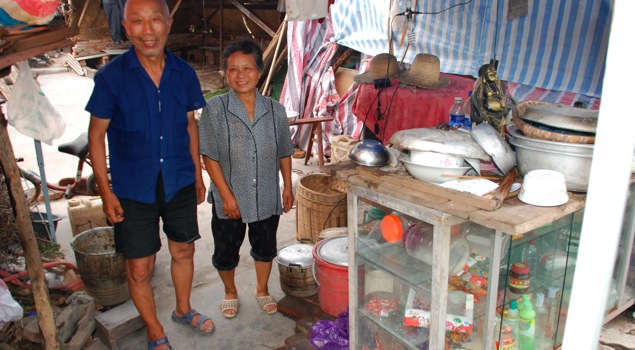
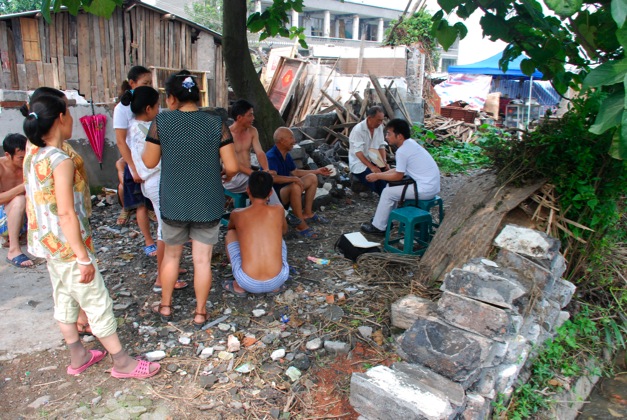
Grandfather Liu recalled the day of the earthquake: when the ground started shaking in the early afternoon, he was out on the street in front of his home drying his mustard seeds. At first he had the impression that something was wrong with him so he knelt down. “When the buildings around me started collapsing I realized that it was not my health,” he recalled. He is still afraid of aftershocks these days and he cannot sleep well at night. The tremors only lasted for a few minutes but they were strong enough to destroy the whole village, including the village clinic. Some overseas organization has sent medicine and a clinic tent in the meantime, but only minor ailments can be treated there.
Before the quake, Grandfather Liu made some extra money by selling daily necessities to fellow villagers. Few items are left in his little cabinet (picture above). He and his fellow villagers still survive on government aid, about 10 yuan a person per day. But he wants to stay independent, relying on his farm work and his children in Chengdu.
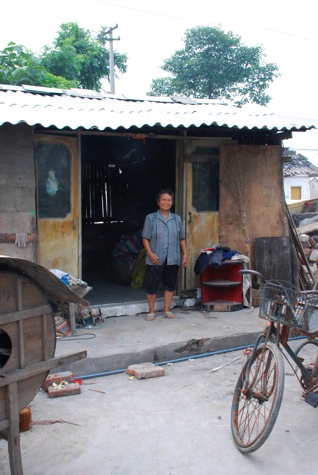
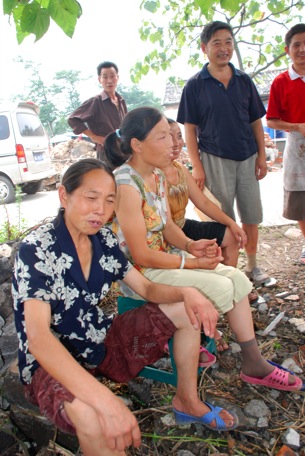
People are not sure how to raise this money. Grandfather Liu, for example, declared he would wait until some point in the future before rebuilding his home. In the meantime he would go on with his farm work, trying to save some money.
Amity is determined to help these people get new homes and a new start after the disaster. Plans are being discussed already.
